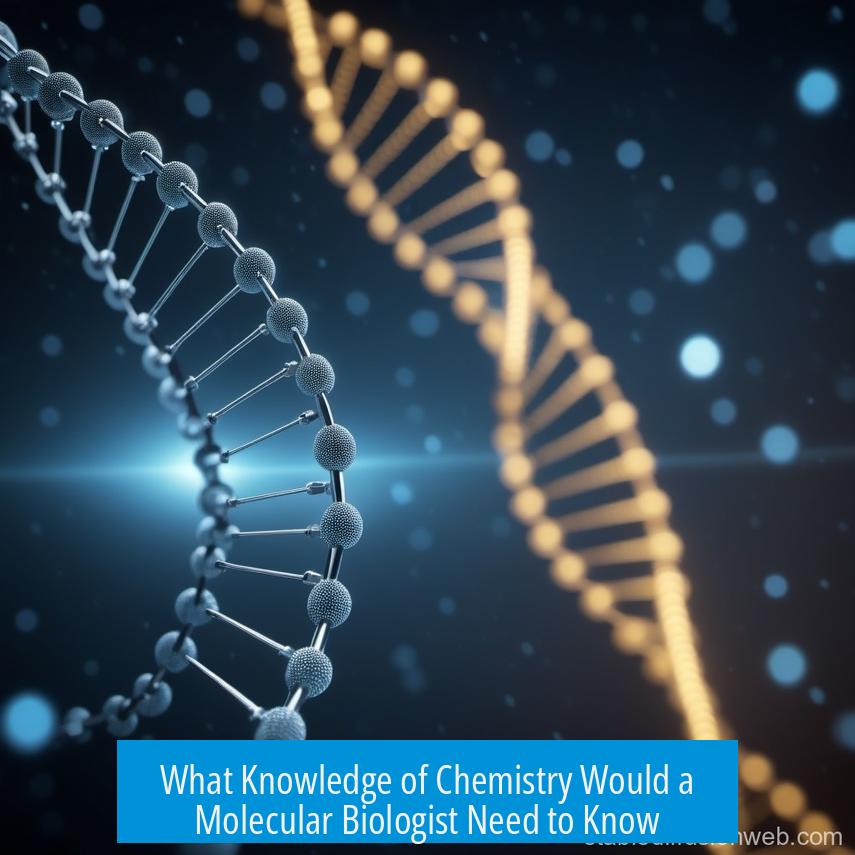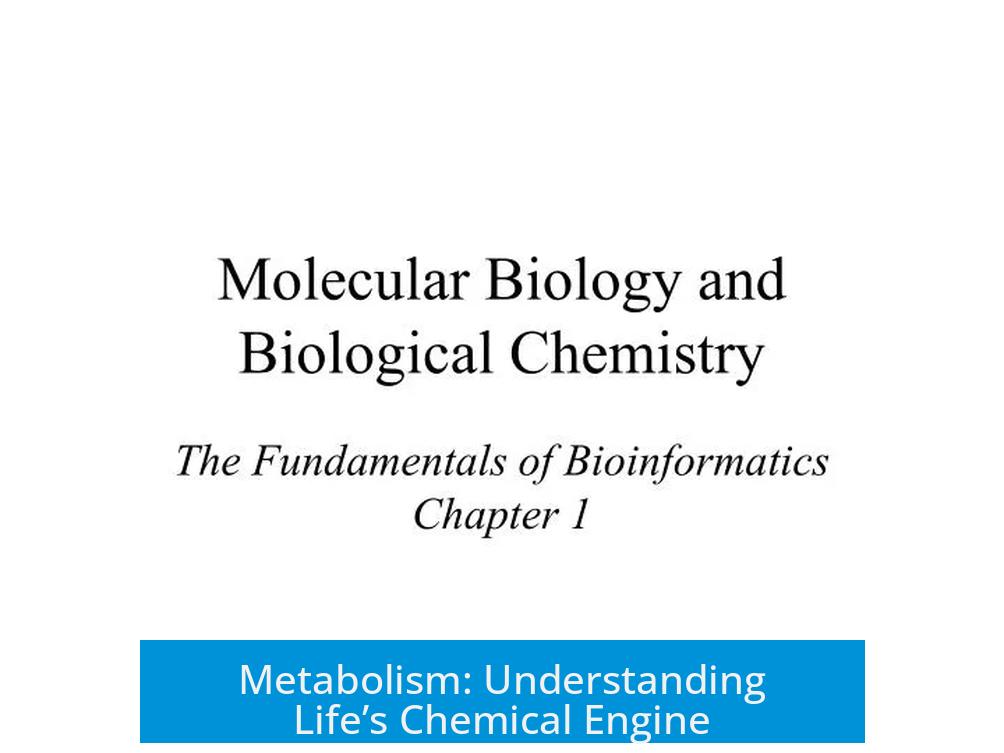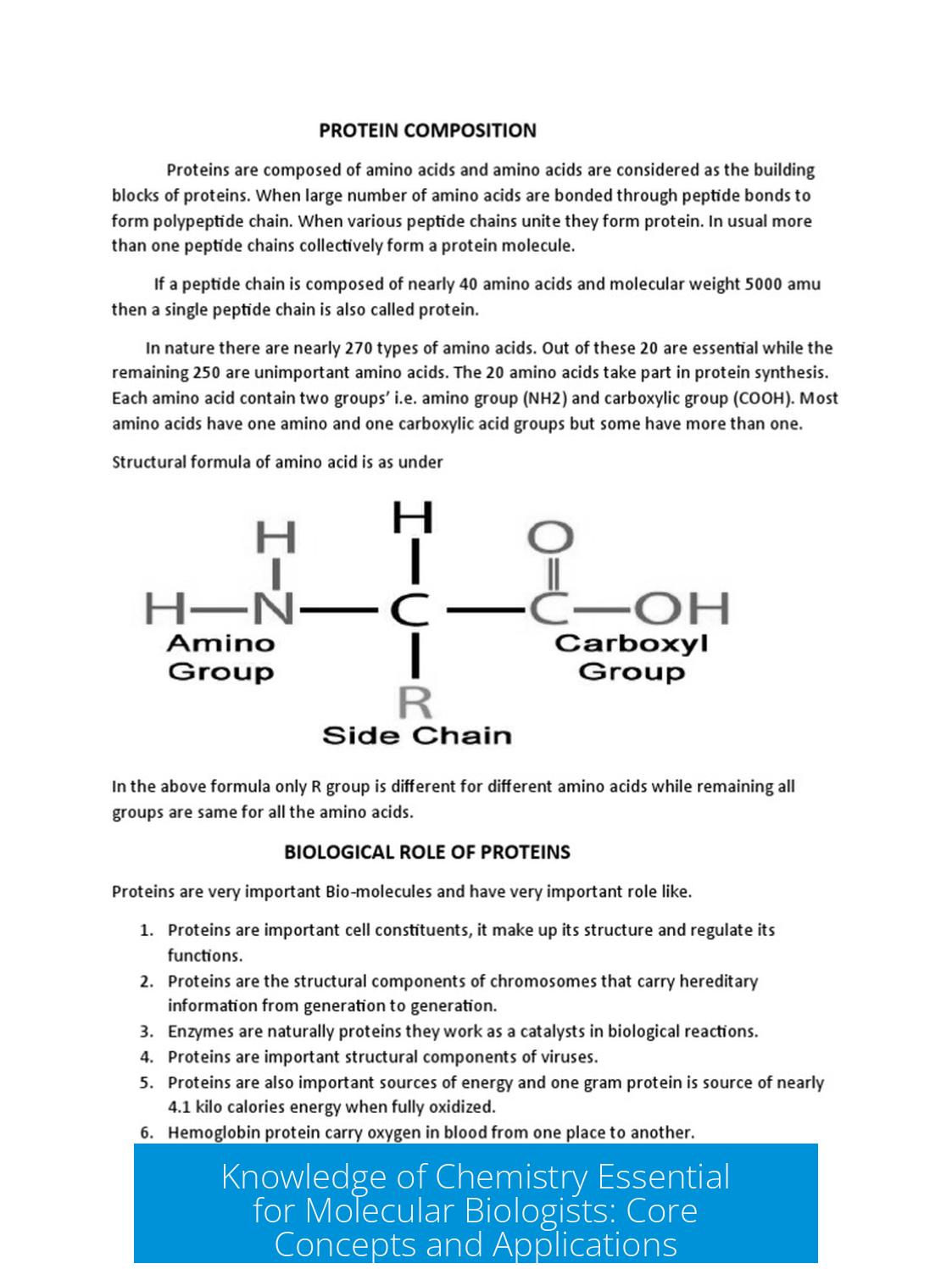What Knowledge of Chemistry Would a Molecular Biologist Need to Know?

Molecular biologists need a strong foundation in biochemistry supported by general and organic chemistry knowledge to grasp molecular interactions and biochemical processes. This foundation allows them to understand cellular functions at a molecular level, from enzyme action to metabolic pathways.
General Chemistry Fundamentals
Basic principles of general chemistry are essential. Understanding acids, bases, and chemical bonds forms the groundwork for more complex biological chemistry. These concepts, rooted in inorganic chemistry, explain molecular stability and interactions.
- Acids and bases influence protein structure and enzyme function.
- Covalent, ionic, and hydrogen bonds determine biomolecular shape and behavior.
Organic Chemistry and Reaction Mechanisms
Organic chemistry knowledge, particularly reaction mechanisms, supports the understanding of biochemical transformations. While not always the focus, this area explains how molecules change during metabolism and replication.
- Reaction mechanisms clarify how enzymes catalyze biochemical reactions.
- Organic functional groups underlie the behavior of nucleotides, amino acids, and lipids.
Some experts prioritize biochemistry over extensive organic chemistry study, as biochemistry directly applies chemical principles to biological systems.
Biochemistry as the Core Discipline
Biochemistry is central to molecular biology. It integrates general and organic chemistry principles to explain cellular processes such as DNA synthesis, protein folding, and energy metabolism.
“Biochemistry is essential for molecular biology; it connects chemical concepts to biological mechanisms.”
This direct application makes biochemistry the most critical chemistry knowledge area for molecular biologists.
Metabolism: Understanding Life’s Chemical Engine

A basic understanding of metabolism is crucial. Metabolic pathways involve complex networks of chemical transformations driving cellular energy production and biosynthesis.
- Knowledge of metabolic routes helps explain how cells generate ATP and process nutrients.
- Understanding enzyme regulation within metabolism informs molecular control mechanisms.
Importance of a Broad Chemistry Base
A broad chemistry foundation strengthens the ability to learn specialized topics. Ignoring basic chemistry concepts may limit the understanding of more advanced molecular biology topics.
Comprehensive knowledge equips molecular biologists to solve complex problems involving biomolecular interactions.
Key Takeaways
- Strong knowledge of biochemistry is indispensable for molecular biology.
- General chemistry principles (acids, bases, bonds) provide essential background.
- Organic chemistry reaction mechanisms enhance understanding but biochemistry is prioritized.
- A basic grasp of metabolism is necessary to comprehend life’s chemical processes.
- Maintaining a broad chemical foundation allows effective comprehension of molecular biology.





Leave a Comment